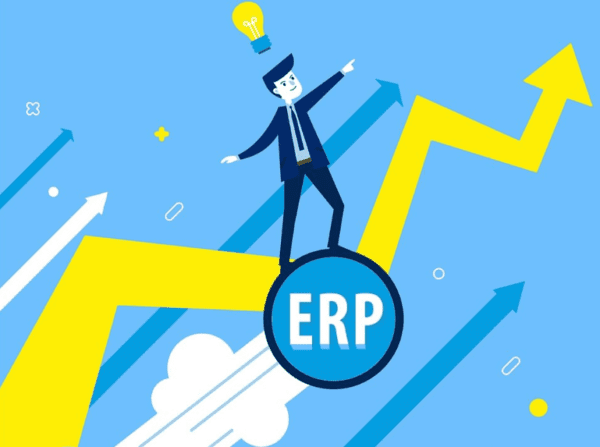Why is it necessary to apply an ERP system in an enterprise?
ERP is enterprise resource planning software but how is it better than other solutions? Is there anything unique about ERP that distinguishes it from other business management system software? If you are considering using ERP in your organization, this article will answer some questions you may have.
Table of Content
1. Improve connectivity at work

As you know, centralized database makes ERP unique. Departments will work on one system with a synchronized data source. This greatly reduces errors and unnecessary risks.
Additionally, if any stagnation occurs in the process chain, it will affect the subsequent operations as well. Additionally, ERP will eliminate the need for business owners to merge information from different departments to avoid missing data.
2. Improve labor productivity
Enterprise employees must be able to work and communicate with stakeholders as well as focus on their expertise. It will be difficult for departments to connect if each uses a separate system. For instance, the accounting department needs to keep track of equipment use and inventory, so it must use a parallel tracking system with the IT department, since there is no shared system for data entry. Because of this, employees need to enter the same information many times, such as the device code, allocation status, recall status, etc. This consumes a lot of time, wastes resources, and affects performance.
A management system like ERP is the optimal choice to solve the remaining manual problems. Decentralized departments can access enterprise data when needed as quickly as possible. This is a system that closely links data between departments to improve work productivity.
Moreover, medium and large enterprises can manage the human resources situation with quality work or not on the same system, thus promptly changing management strategies.
3. Digital working environment

Keep your business’ size small, but make sure it doesn’t change the way it works. The working environment culture must be changed when it is determined the business needs to go a long way and develop further. To keep up with the 4.0 era, employees will also work more professionally to maintain the competitiveness of the business image.
ERP introduces many changes in an enterprise because employees must use the system to store, find information, make reports, and perform other tasks compared to a manual workplace. In order to solve outstanding problems of departments, the system helps businesses become fully digitized.
4. Outstanding business growth

ERP will be a lever to help promote the business situation of enterprises. An organization such as PNJ is an example of how ERP can be used to restructure with breakthrough business growth figures.An organization such as PNJ is an example of how ERP can be used to restructure with breakthrough business growth figures. Specifically, PNJ implemented the ERP system in 2013, after 5 years, sales increased by 190%, profit after tax was at 630%. In particular, PNJ has reduced the employee turnover rate to 1-3 %/year. What was the reason for their success? To be able to manage well and achieve the set goals, imagine how much resources PNJ will spend using discrete management systems.
As a result of the above 4 factors, digital transformation with ERP significantly affects revenue, resources, and company development.
As you can see, there are a number of reasons why ERP should be implemented in overall business management. As you can see, there are a number of reasons why ERP should be implemented in overall business management.














